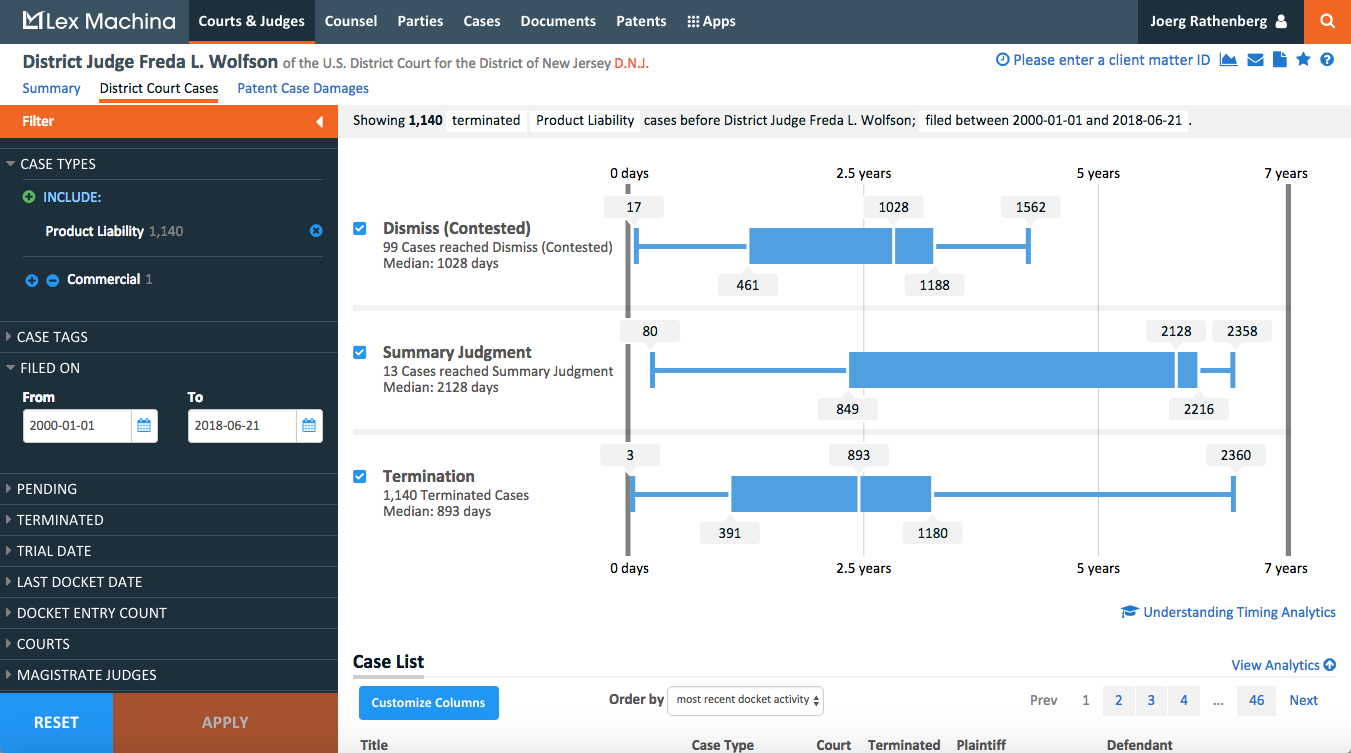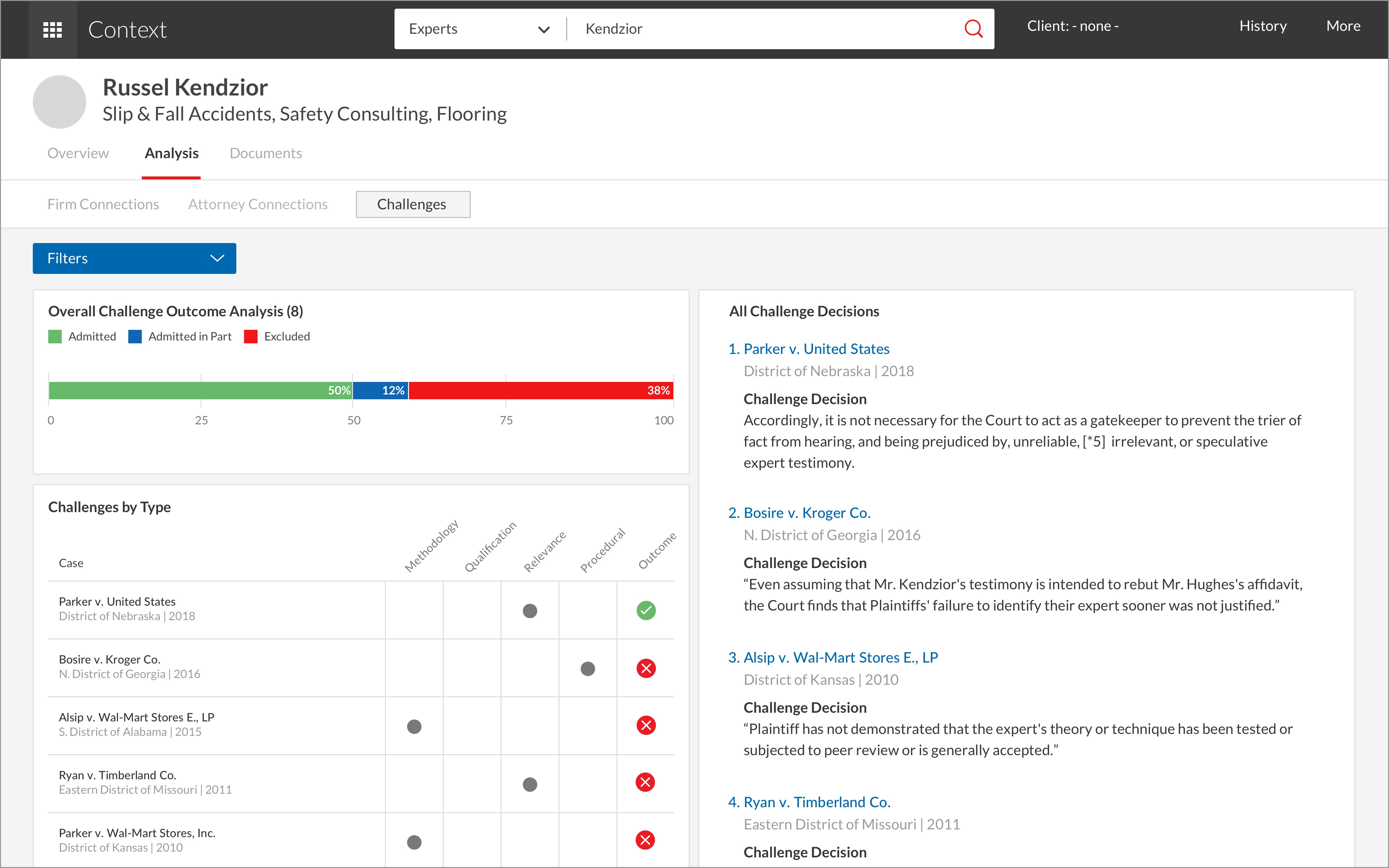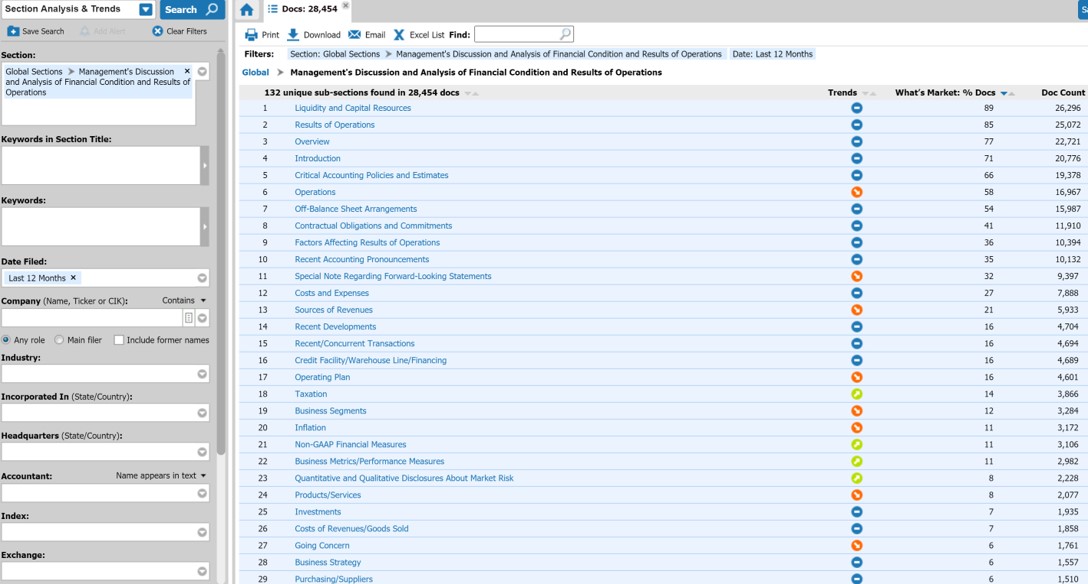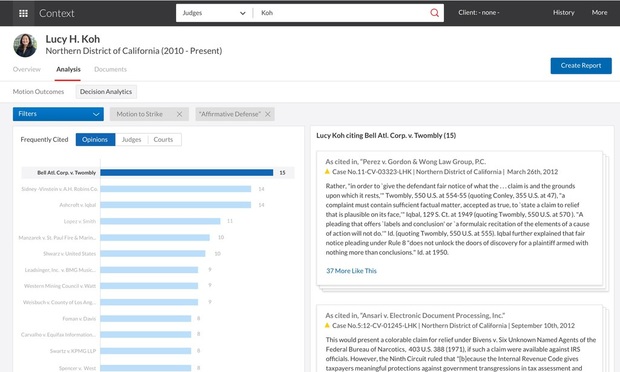LexisNexis has been positioning itself in recent years as the leader in legal analytics. In addition to acquiring three legal analytics companies – Intelligize, Lex Machina and Ravel Law – it has been developing analytics of its own within various of its products.
Now, in a major move to integrate all those products and affirm its commitment to becoming the market leader in legal analytics, LexisNexis is launching Lexis Analytics, a suite of tools that organizes all of its major analytics acquisitions and products (as well as a couple new ones) into three categories – litigation, regulatory and transactional.
“We felt a responsibility and opportunity to really say, ‘Here’s what legal analytics is, here are the use cases,'” Josh Becker, CEO of Lex Machina, told me during a recent conversation. “We’ve formed the industry-leading products in this space. We said, ‘Let’s put a stake in the ground.'”
“The result,” LexisNexis said in announcing the new product yesterday, “is an unrivaled analytics suite that streamlines data-driven workflows and brings unprecedented efficiency, productivity and insight to the practice of law.”
Had its announcement come a day earlier, an analytics suite of this scale would, in fact, have been unrivaled. But with Thomson Reuters’ launch yesterday of its next-generation research platform Westlaw Edge – which features, among other things, litigation analytics for all federal and state courts, broader coverage than LexisNexis currently has – LexisNexis now has a major rival in this category and the two companies may now be at the start of an extended horse race for the title of analytics leader.

Lex Machina’s analytics are part of the Litigation Analytics suite.
That said, Lexis Analytics goes beyond litigation to also include regulatory and transactional analytics. Here’s how LexisNexis organizes them:
Litigation analytics. These are analytics based on court dockets and are designed to enable attorneys to better plan and strategize around litigation, offering insights into motion and case outcomes, judges, timing, opponents and related subjects. Analytics products grouped under the litigation umbrella include Lex Machina and a new offering, Context, which identifies the language judges cite most in opinions.
Examples of ways these can be used are to anticipate a judge’s behavior, use language that will give you an edge before a judge, anticipate your opposing party’s moves, and set a more accurate litigation budget.
Since acquiring Lex Machina, LexisNexis has been steadily expanding the practice areas these analytics cover. To date, they include antitrust, bankruptcy, commercial, copyright, Delaware Chancery, employment, patent, product liability, securities, trademark, and trade secret.
Regulatory analytics. These are analytics designed to help attorneys track regulatory developments, predict which bills will pass, and understand disclosure obligations. Products under this umbrella include Lexis Advance Legislative Outlook and Intelligize.
Examples of ways these could be used include predicting the likelihood that a bill will pass, accessing regulatory compliance risk, and tracking regulatory developments.
Transactional analytics. These are analytics designed to help attorneys better manage transactions through contract and document analytics. Products under this umbrella include Intelligize, an analytics tool for SEC filings, and a new offering, Lexis Search Advantage | Transactional Powered By Intelligize, which applies contract analytics to in-house and firm document collections.
Examples of how these could be used include analyzing disclosures of industry peers, identifying market trends based on frequency of disclosure topics, and knowing the latest precedents and clauses.
“Our vision – embodied in our recent strategic acquisitions, our infusion of true A.I. into Lexis Advance and today’s launch of Lexis Analytics – is to put the power of data-driven law in our customers’ hands,” Jeff Pfeifer, vice president, product management, said in yesterday’s announcement. “Lexis Analytics is a suite of decision tools that brings together content from Lexis Advance with advanced data analytics to answer the key legal questions that were once thought to be unknowable.”
Includes Two New Products
As noted, yesterday’s announcement included the launch of two new analytics products: Context and Lexis Search Advantage | Transactional Powered By Intelligize.

View of Context showing challenges to an expert witness.
I have not yet seen Context, but LexisNexis says it is a unique analytics tool engineered from the combination of Ravel Analytics, Lexis Advance and the former Lexis Litigation Profile Suite. Here’s how LexisNexis describes it:
Context extracts persuasive language from court opinions, challenges and motions to help attorneys best present and argue their case. Advanced machine learning and A.I. technologies analyze case law to identify the language a judge cites the most. The result: Attorneys are able to argue more persuasively by using the language a judge wants to hear.
The launch of Context represents, in a sense, the second half of the integration of Ravel Law into LexisNexis. Two weeks ago, I reported here on the integration within Lexis Advance of Ravel’s caselaw visualization technology.
This is also a substantively different kind of litigation analytics than those that are provided by the Lex Machina platform that LexisNexis acquired, Becker told me during our recent conversation. While Lex Machina’s analytics focused primarily on the strategy side of litigation, Context is focused on exploring the language of litigation documents to get at the substance of law.
“You need both, strategy and substance,” Becker said. “The Context piece will be key part of Litigation Analytics.”

The new Lexis Search Advantage | Transactional Powered By Intelligize.
As for Lexis Search Advantage | Transactional Powered By Intelligize, it is more than just a mouthful of a name. It is built on the technology that powers Intelligize, but now applies that technology to internal law firm and legal department document collections. From within Lexis Advance, users will be able to mine their internal documents while simultaneously searching precedential agreements filed with the SEC.
These analytics suites are tightly integrated with Lexis Advance. As I understand them – again, without actually having seen them – these suites are not meant to function in isolation as standalone products, but as integrated components of the overall research experience.
 Robert Ambrogi Blog
Robert Ambrogi Blog